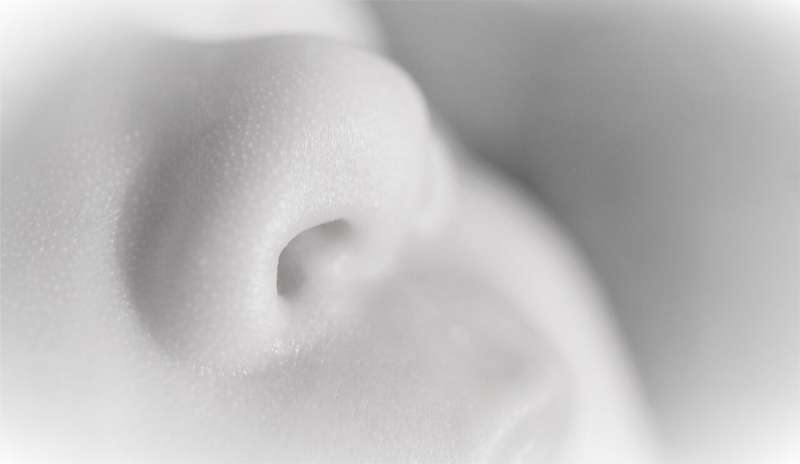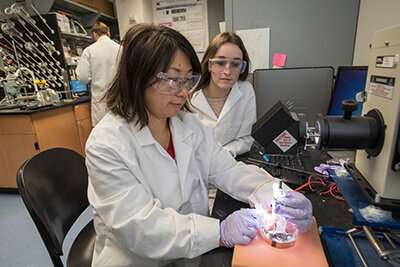Artificial nose shows potential to treat breathing disorders

A respiratory simulation device, complete with an artificial nose made from a 3-D printer, is the subject of Miami University's newest patent and a potential breakthrough in researching, diagnosing and treating breathing disorders.
Lei Kerr, professor of chemical, paper and biomedical engineering, is the inventor on the patent along with co-inventors at the Air Force Research Laboratory at Wright-Patterson Air Force Base. Kerr said the research can advance knowledge of nanomaterials whose functionality and applications are affected by the respiratory flow patterns to the brain.
Small enough to fit into a suitcase, the device mimics human breathing and helps determine the toxicity of the smallest particles that enter the nasal cavity, particularly the olfactory region. The research could provide more realistic predictions for drug screening and other potential commercial uses, Kerr said.
"We are very excited because I think this is a different technique for nanotechnology fields," she said. "With aggressive support for this research, this device can be turned into something very useful for researchers and companies."

Kerr has been working with researchers at Wright-Patterson for several years. Students have contributed as well. Undergraduates in a senior design capstone class helped lay the groundwork, and Kerr's lab includes about seven graduate students.
The patent is another step in Miami's program to enhance research opportunities for students and increase externally funded research projects. Miami holds about 40 patents producing a small revenue stream. Counting private and government grants and contracts, overall external research funding totaled about $24 million each of the last two fiscal years.
"We have a modest portfolio of patents, but the ones we have are of high quality," said Jim Oris, vice president of research and innovation.
In another potentially valuable example of the increased research emphasis, Miami has granted PsyBio Therapeutics Inc. a global exclusive license to Miami-developed technology, a collaboration aimed at developing a new class of molecules to treat mental health challenges such as depression, anxiety, PTSD and substance dependency.
In the case of Kerr's research, Oris said the strong collaboration with the Air Force Research Lab will help provide real-life research results, rather than statistical models.
"This could lead to better safety in occupations where aerosols and other dangerous chemicals are present, both in domestic or military applications," Oris said.



















